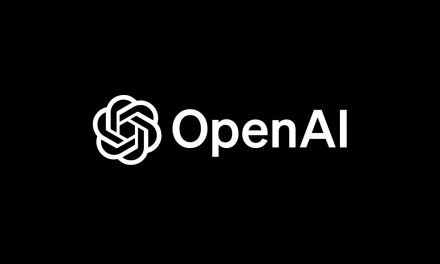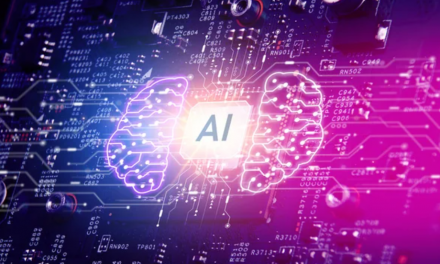When OpenAI’s engineers demonstrated an AI stylist agent recommending outfits based on employee preferences during last week’s livestream, it wasn’t just a quirky showcase of machine learning prowess. Hidden beneath the surface was a tectonic shift in how businesses will operationalize artificial intelligence. The launch of OpenAI’s Agents SDK and Responses API marks the moment agentic AI transitions from experimental labs to boardroom strategies, promising to reshape workflows from customer service to financial analysis. But what does this mean for enterprises racing to stay ahead in the AI era—and what risks lurk beneath the hype?
From Chatbots to Corporate Colleagues: The Evolution of AI Agents
The concept of AI agents isn’t new. For years, developers have tinkered with chatbots and rule-based systems to automate simple tasks. But early iterations were brittle, limited to scripted responses, and prone to failure when confronted with novel scenarios. The breakthrough lies not in the idea of agents, but in their newfound sophistication. By combining large language models (LLMs) with tool-wielding capabilities—web searches, code execution, database queries—OpenAI’s framework enables AI to act as a dynamic problem-solver rather than a passive responder.
“This isn’t about replacing humans,” explains Dr. Elena Torres, a Stanford AI researcher who reviewed the SDK documentation. “It’s about creating digital collaborators that understand context, make decisions within guardrails, and chain together multi-step processes. Think of it as giving AI a Swiss Army knife instead of a single blade.”
The technical magic happens through two components:
- Agents SDK: A toolkit allowing developers to equip AI with specialized skills (e.g., parsing spreadsheets, initiating refunds)
- Responses API: A conduit linking these skills to real-world applications, enabling actions like approving transactions or updating CRM systems
Unlike previous frameworks requiring complex API orchestration, OpenAI’s solution standardizes agent creation. Developers define an agent’s role (“customer support specialist”), grant access to tools (order history databases, payment systems), and set behavioral guardrails. The system then autonomously determines when to use which tool—a leap toward generalized AI productivity.
Inside Box’s 48-Hour Automation Sprint
Cloud storage giant Box offers a glimpse into the practical frenzy sparked by these tools. Within two days of receiving early SDK access, Box’s engineers built an agent capable of automating refund approvals by cross-referencing policy documents stored on its platform with customer purchase histories.
“The speed was surreal,” admits Box CTO Ben Kus. “We didn’t just prototype—we deployed. Our agent checks eligibility criteria, assesses historical interactions, and even flags edge cases for human review. It’s handling 30% of routine refund requests already.”
But Kus emphasizes that success required rethinking data infrastructure. Traditional search systems prioritize human-readable results, but AI agents thrive on structured, context-rich data. Box redesigned its search APIs to serve agents “buffets of verified data” instead of “à la carte documents,” ensuring decisions are grounded in accurate, up-to-date information.
The Silent Revolution in Developer Workflows
Olivier Godement, who leads OpenAI’s API division, describes the developer experience as “shifting from architects to conductors.” Previously, creating an AI agent involved stitching together multiple APIs, writing custom logic for tool selection, and manually handling state management. Now, the SDK abstracts these complexities.
Consider a billing agent:
- A developer defines its purpose (“Generate invoices based on contract terms”)
- Grants access to tools (accounting software APIs, contract databases)
- Sets boundaries (“Never issue invoices above $10k without manager approval”)
The agent then autonomously navigates between tools—pulling contract details, calculating charges, generating PDFs, and alerting supervisors when thresholds are crossed. “It’s like teaching someone the principles of accounting,” says Godement, “then trusting them to apply those principles across diverse scenarios.”
Who Wins—and Who Gets Disrupted?
The democratization of agentic AI could rewrite industry playbooks:
- Customer Support: Agents resolving tier-1 queries instantly, freeing human teams for complex cases
- Financial Services: Real-time fraud detection by agents cross-referencing transactions with market data
- Healthcare: Prior authorization bots validating insurance claims against patient records
Gartner analyst Marco Rivera warns, however, that competitive advantage will hinge on data quality. “Agents are only as good as the information they access. Companies with messy, siloed data will see marginal gains, while those with clean, interconnected systems could achieve 10x efficiency leaps.”
Startups are already seizing opportunities. Nara Logics, an AI consultancy, used the SDK to build a procurement agent for manufacturing clients. “It negotiates with suppliers via email, checks inventory databases, and even predicts shipping delays using weather APIs,” says CEO Jana Kimmel. “Two months ago, this would’ve required a 10-person team.”
When Autonomy Meets Accountability
As excitement builds, ethicists urge caution. Dr. Amira Patel, who chairs the EU’s AI
Ethics Board, flags three risks:
- Opacity: Complex agent decisions becoming inscrutable to human auditors
- Overreliance: Employees blindly trusting AI judgments without safeguards
- Entrenchment: Biases in training data magnified through automated actions
OpenAI attempts to mitigate these through mandatory transparency features. Every agent decision is logged with a “chain of thought” explanation, and developers must implement human-in-the-loop checkpoints for high-stakes actions. But Patel argues this isn’t enough: “We need industry-wide standards for agent oversight, not just technical Band-Aids.”
Regulatory clouds loom, too. The SEC recently questioned whether AI-driven financial decisions comply with fiduciary rules, while GDPR requires explanations for automated determinations affecting EU citizens. “The legal system isn’t ready for AI agents making thousands of micro-decisions daily,” says cybersecurity attorney Liam Chen. “Who’s liable if a refund agent violates consumer protection laws? The developer? The company? OpenAI?”
Agents as the New UI
Looking forward, OpenAI envisions a world where personal agents negotiate with business agents—your AI assistant booking a vacation by haggling with a hotel’s AI over upgrades. But this raises existential questions. Will agent-to-agent communication evolve its own protocols? How do we prevent monopolies controlling critical agent ecosystems?
For now, the focus remains on incremental adoption. Kus predicts enterprises will start with “low-risk, high-reward” tasks like document processing before trusting agents with sensitive operations. Godement agrees: “We’re in the Netscape moment—these tools will evolve faster than anyone expects.”
As sunset hues painted Silicon Valley’s skyline last Thursday, a lone developer in a Palo Alto café demoed an agent scheduling meetings across time zones. It wasn’t flawless—it double-booked a call with Tokyo—but with each iteration, it learned. In that glitchy triumph echoed a larger truth: The age of AI colleagues isn’t coming. It’s already here.





